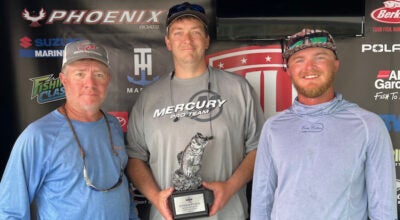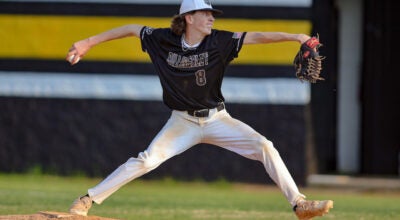If nothing else, Selig got Classic right
Published 9:06 pm Tuesday, March 10, 2009
Say the name “Bud Selig” out loud in a crowded grocery store or shopping mall. Actually, don’t. If you do, you’ll be cussed, kicked and spit on. Selig may just be the least popular man in all of sports. Forget Barry Bonds, Alex Rodriguez and Terrell Owens, Selig’s name is spewed like venom by fans and analysts convinced there’s somebody higher up than the players who shot up that is responsible for baseball’s steroid problem.
Baseball’s commissioner and other officials no doubt deserve some blame. Throw in a botched all-star game, strikes and near-strikes, and all of a sudden Selig is a household joke. Probably even to blame for world hunger and the economic downturn.
But Selig has done one thing right: the World Baseball Classic. Geez. I was just called a bad word for having put Selig’s invention in writing. The Classic is quality entertainment for those of us who get little pleasure from the NBA regular season, college basketball conference tournaments or baseball’s spring training. Temperatures are warming up, and I want to see some meaningful competition played outdoors. Fortunately, I get the Classic every four years. Ouch! I was just kicked for again bringing up something Selig had a hand in, but I will press on. If you’re not familiar, the tournament was designed as the first international baseball competition in which U.S. and Japanese major league players participate. It has been criticized for, among other things, not being a traditional part of the game, not seeing full participation by the best players in each country and creating an extra opportunity for players to get injured. My response: So what?
If you saw the United States’ tense, 6-5 win over Canada (the team that eliminated the United States in 2006) in the first game for both teams, you know every player in uniform, every fan in attendance and everyone watching at home was riveted. U.S. outfielder Adam Dunn could have been seen checking his pulse during the decisive ninth inning. What else matters?
Well, to Selig, it probably matters that the Classic help grow the sport internationally. Um, excuse me while I wipe the spit off my shirt after mentioning that name again. It’s too early to say if the Classic will help produce international talent, but it can’t hurt. Domestic talent, which has declined, should be considered, also.
With that goal in mind, why not play some of these spring training games in states that don’t have a big league team? Alabama, for example. I think a laid back, affordable game between MLB teams in Birmingham’s Region Park or Montgomery’s Riverwalk Stadium could encourage lots of young football and basketball players to give baseball a shot as well.
Until then, I’ve got the World Baseball Classic to watch.






